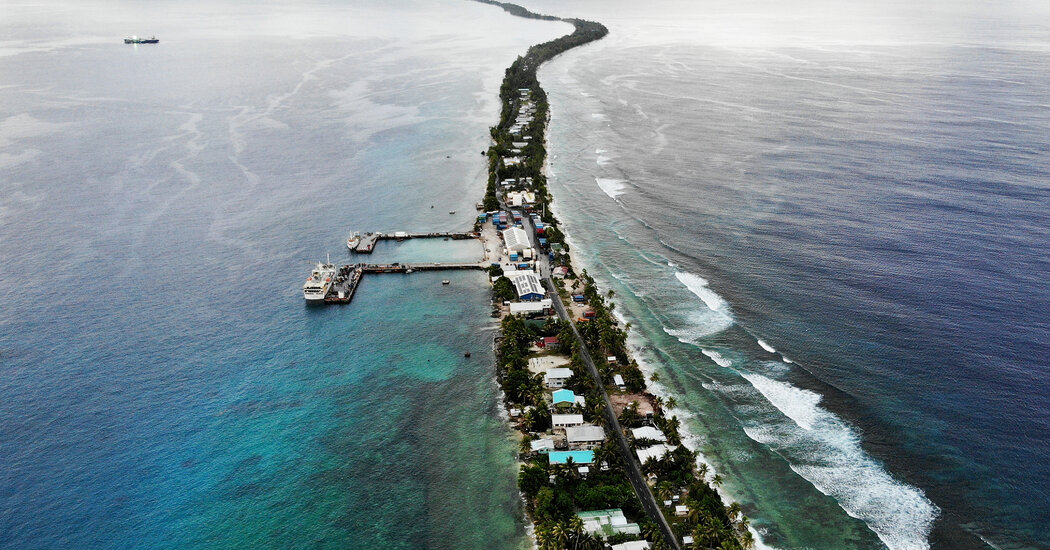Once comprising 11 islands, the Pacific island nation of Tuvalu is now down to nine flecks of land totaling less than 10 square miles. Like their lost siblings before them, these islands risk gradually being eaten away by the rising tides of the world’s warming oceans.
For decades, Tuvalu’s leaders have warned about the effects of the world’s emissions on this tiny place. Kausea Natano, the prime minister, said in September on the sidelines of the United Nations General Assembly, “It’s a matter of disappearing from the surface of this earth.”
This week, a bipartisan agreement was announced between Tuvalu and Australia that would help Tuvalu mitigate the effects of climate change. Many anticipated a wholesale offer of climate-based asylum for Tuvalu’s approximately 11,200 citizens.
However, the truth is rather less dramatic. The treaty recognizes that “climate change is Tuvalu’s greatest national security concern,” but it will permit no more than 280 residents to migrate from Tuvalu to Australia each year, under an existing visa type for residents of the Pacific.
Tuvalu’s prime minister explained the limit had been imposed to avoid brain drain: skilled citizens fleeing their home nation for wealthier or otherwise more appealing shores.
The agreement was presented as an opportunity for the people of Tuvalu “to live, study and work elsewhere, as climate change impacts worsen.” However, at the rate of 280 people annually, it would take around 40 years for all of Tuvalu’s citizens to relocate to Australia.
The agreement stresses “the desire of Tuvalu’s people to continue to live in their territory where possible, and Tuvalu’s deep, ancestral connections to land and sea.”
To help them accomplish that, Australia will contribute money to Tuvalu’s Coastal Adaptation Project, which aims to reclaim land around the main island, Funafati, as well as at least 350 million Australian dollars, or about $220 million, in climate infrastructure for the region.
For Australia, the value of the accord may far outstrip the benefits for Tuvalu, as it states that the Pacific nation will not enter any other international security arrangement without Australia’s explicit agreement, limiting the likelihood of Tuvalu’s forming an alliance with China like the one the Solomon Islands has entered into.
The climate-related challenges facing Tuvalu are profound, with half of the land area of Funafuti anticipated to flood daily by 2050, according to the country’s government. The nation also faces significant difficulties with drought and increasingly saline groundwater.
Despite the millions that Tuvalu plans to spend on climate adaptation, a constitutional change adopted by the nation in October suggests that plans are underway for a future in which its islands are fully submerged. The document asserts that the country’s statehood will remain “in perpetuity in the future, notwithstanding the impacts of climate change,” even if the landmass no longer exists.
Lawmakers hope that the country’s unique Polynesian culture — as well as its exclusive fishing rights to a maritime area that is larger than Texas — will remain.
